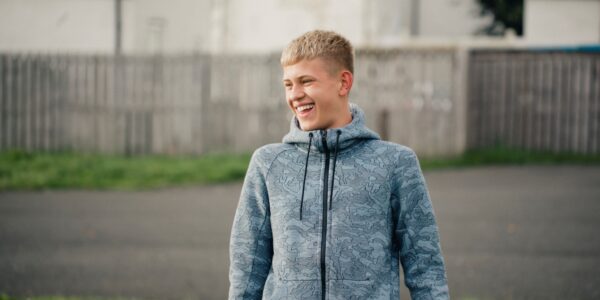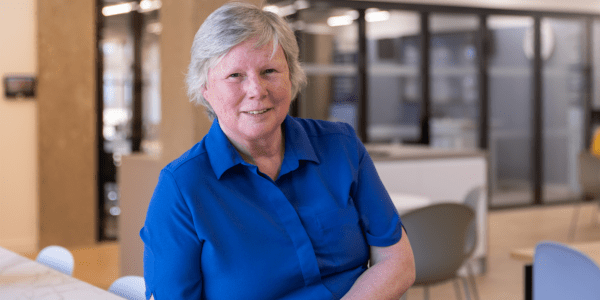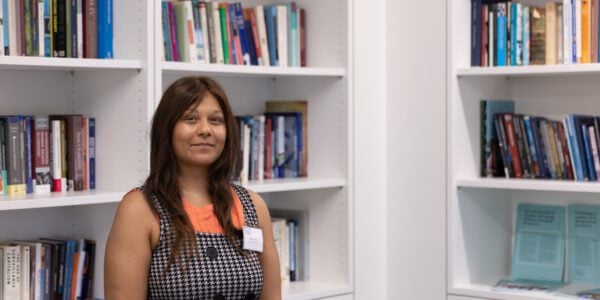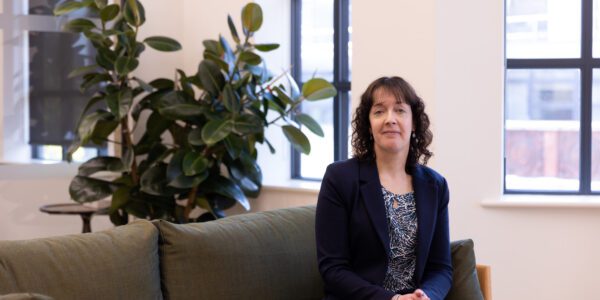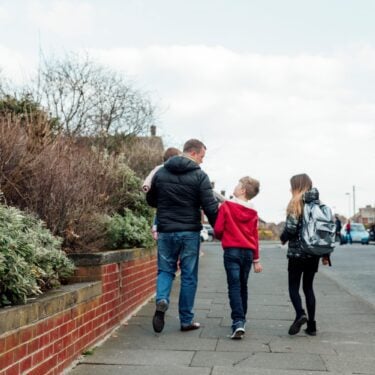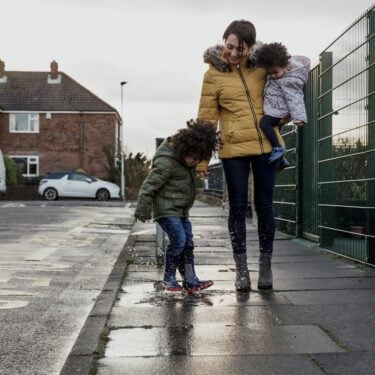The importance of treating children as children in the Youth Justice System
Stephen Case is Professor of Youth Justice at Loughborough University. He is mid-way through a two-year grant from the Foundation to explore children’s participation and engagement in youth justice processes and practices.
Tell us about your Nuffield-funded project
My project is called Child First: examining children’s collaboration in the Youth Justice System. Along with colleagues Dr Kathy Hampson and Andrea Nisbet, we are examining children’s perceptions of their capacity for meaningful collaboration in youth justice decision-making processes, and what they consider to be effective practices along their youth justice journeys. To ensure we achieve a ‘child-centric’ understanding of the Youth Justice System (YJS), children with direct experience of the justice system have been involved in the project from the start as co-researchers. The aim is to create child-friendly guidance and resources on collaboration practice/expectations and provide training for youth justice professionals on how to include children’s views when co-creating collaborative practice.
What were the origins of the project?
The number of children (10-17 years) entering the YJS of England and Wales is falling, but those remaining increasingly have multiple, complex and often unmet needs. We strongly believe that prioritising a top-down, ‘adult-led approach prevents children from having meaningful participation in youth justice processes. It also marginalises their voices, experiences and perspectives. This is totally at odds with the ‘Child First’ guiding principle of the Youth Justice Board for England and Wales which includes seeing children as children, building their strengths and capacities to fulfil their potential, diverting them away from the YJS and our priority – meaningful collaboration.
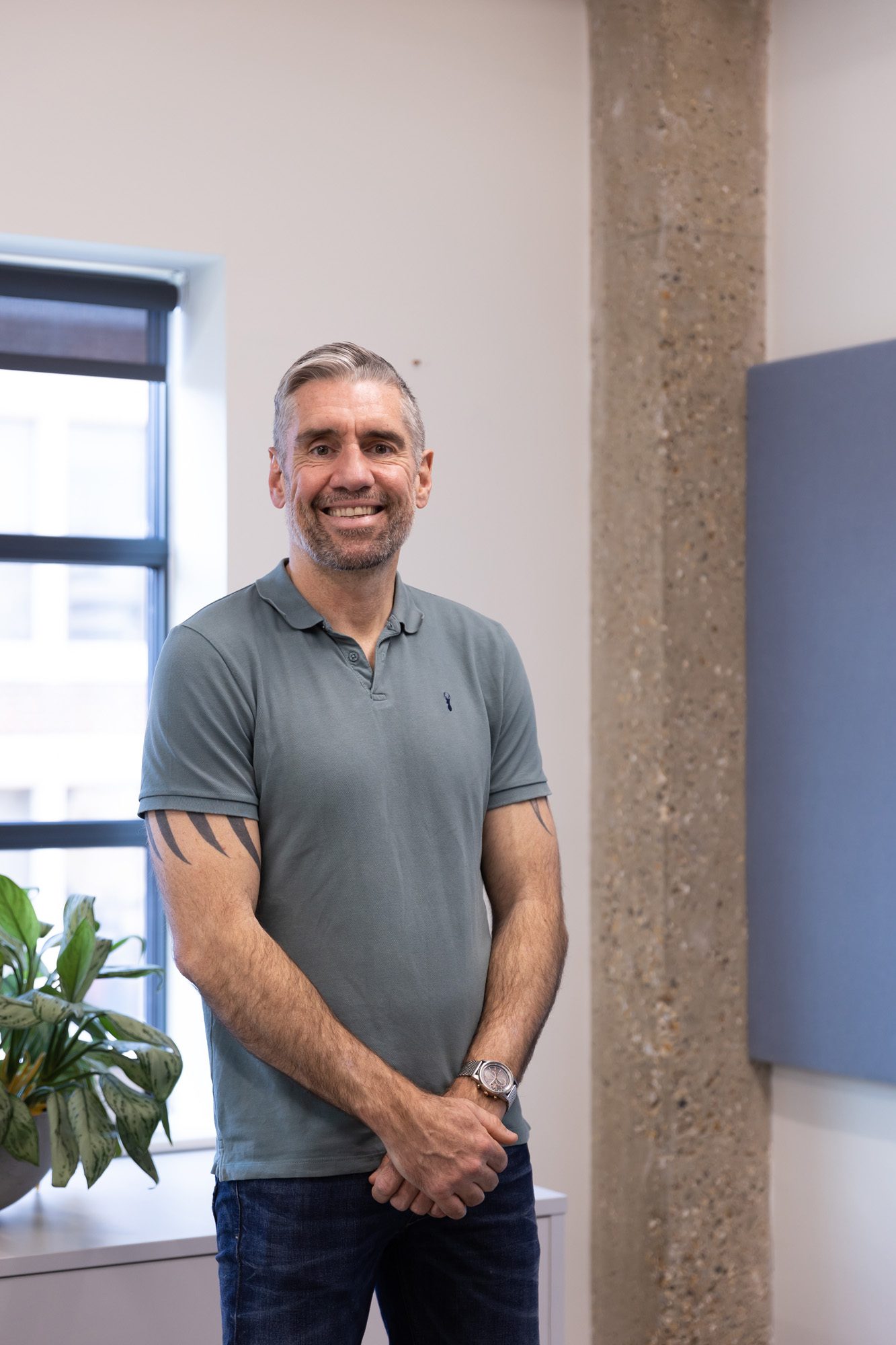
What is the goal of this research?
Our overarching aim is to explore children’s perspectives of the extent, nature and impact of their meaningful collaborations within and between stages and processes of the YJS. Our research questions focus on:
- Collaboration understandings: How do children perceive and understand their involvement in the decision-making processes that underpin responses to their offending across the YJS?
- Collaboration objectives: What do children believe should be the objectives and benefits of their collaboration in decision-making processes? Do these perceived objectives/benefits differ to those held by adult professionals – if so, how and why?
- Effectiveness: How do children perceive and experience ‘effective’ practice and collaboration, such as the effectiveness of processes and how outcomes should be measured?
- Practice development: What is the extent and nature of children’s ‘Child First’ youth justice experiences, and how could these be improved?
What motivates your research interests?
My research interests as a criminologist have always been in the youth justice field, seeking to promote child-centric, children-first approaches to understanding and working with children experiencing problems. I am also a staunch critic of anti-child, adult-centric approaches such as risk management. Every part of my professional experience tells me that Child First is a principled, ethical, humane, progressive and evidence-based approach in the YJS and beyond, whereas risk management and responsibilisation (holding children individually responsible for their actions) is most definitely not.
We strongly believe that prioritising a top-down, ‘adult-led approach prevents children from having meaningful participation in youth justice processes. It also marginalises their voices, experiences and perspectives.
What’s the one thing you would change or one difference you would make within youth justice if you had the power and resources to do so?
Increase the age of criminal responsibility to 14
What’s been your experience of working with / being funded by the Nuffield Foundation?
Working with Nuffield has been extremely positive for me. The Nuffield Foundation is seeking to make a real, positive difference to the lives of children by actively promoting innovative, progressive, ambitious and principled research approaches and, as a result, equivalent understandings of children’s lives. My project managers and critical friends at Nuffield – Rob and Ash in the Justice team – have been nothing but supportive and fully engaged with the research process and the objectives of improving the lives of children. It’s why I keep coming back!
What are you most proud of having achieved in your career or professional life to date, and why?
My proudest achievement of the 2000s was contributing to the scholarly and evidence-based critique of risk management that ultimately led to the demise of the Scaled Approach assessment-intervention framework and its replacement with AssetPlus, which is far more child-centric. My proudest achievement since 2010 and probably overall is my contribution to the scholarly arguments and evidence base that has underpinned ‘Child First’, and its adoption as the guiding principle for youth justice practice in England and Wales.
Twitter: @SteveCaseCrim
linkedin.com/in/steve-case-761400a9
Read more about the project
The Nuffield Foundation is an independent funder. The views expressed by Nuffield-funded grant holders are not necessarily those of the Foundation itself.

